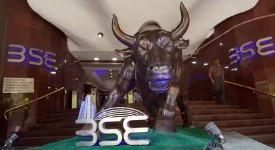The Securities and Exchange Board of India or SEBI has levied Rs 5 lakh penalty on HSBC Asset Management (India) after discovering that an earlier 2023 order clearing the fund house was incorrect.
The penalty is linked to HSBC’s acquisition of L&T AMC, which was integrated into HSBC AMC in October 2023 following its acquisition in May 2023.
SEBI’s investigation focused on whether the fund house had appropriately documented its investment decisions.
The probe scrutinised the reasons behind selling three specific stocks—Hindustan Zinc, Sadbhav Engineering, and Vodafone Idea—which resulted in combined losses exceeding Rs 42 crore. The individual losses were Rs 1.61 crore, Rs 14.97 crore, and Rs 25.43 crore, respectively.
Kamlesh C Varshney, a whole-time member of SEBI, reviewed the earlier decision and concluded that it was “erroneous to the extent that it was not in the interests of the securities market.”
On November 6, 2023, SEBI issued a show-cause notice to HSBC AMC, questioning why the August 23, 2023, order, which had been issued by an adjudicating officer, should not be revised or reviewed. The earlier order had been based on an independent audit requested by SEBI, which examined L&T Mutual Fund’s operations from April 1, 2019, to March 31, 2021.
The audit report, delivered on July 15, 2022, highlighted inconsistencies in record-keeping and rationale behind investment choices. Despite these findings, the adjudicating officer had previously cleared the fund house of any wrongdoing.
The officer noted that SEBI’s July 2000 circular, which detailed the requirements for asset management companies (AMCs) regarding investment decisions, was unclear. It was also noted that neither the Mutual Fund Regulations nor the circular specified deadlines for updating research reports, making it unreasonable to penalize the AMC for failure to do so.
Furthermore, the earlier decision acknowledged that the AMC had claimed to continuously monitor investee companies’ stocks. In the absence of counter-evidence, the adjudicating officer found the claim of insufficient due diligence due to outdated research reports unsubstantiated.

















